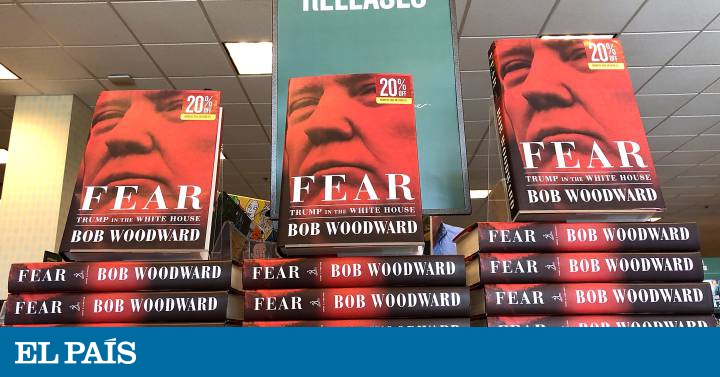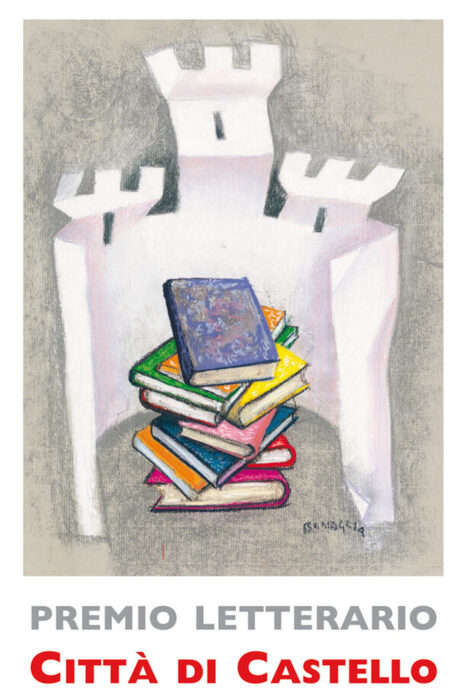To understand the presidency of Donald Trump, just look at his cultural products.
Few films in the last decade have managed to explain the racism that exists in the prisons of the United States like the Netflix series
Orange is the New Black
.
Five months before Trump won, in season four, one of the most adored characters - the African-American prisoner Poussey Washington - dies suffocated by a white and racist guard while she manages to say: "I can't breathe."
Those were the words Eric Garner spoke in 2014, and the same words George Floyd spoke a few months ago, when the police took one last breath from them.
Ava DuVernay's documentary
13th was
also important to explain in detail the crisis in prisons and racism a few years ago.
and Michelle Alexander's book
The Color of Justice
, but those three words are still enough to sum up four years of the racist agenda that governed the White House.
Bookstores and television are now flooded by other types of titles: those that tell the insides of the Donald Trump government, those who denounce with just anger the patriarchy that the president represents and those who try to understand the broken promise of social networks from that the
twitter-president
came to power
.
The editorial obsessions of the last four years reflect, to some extent, the new wounds left by Donald Trump.
Trump-literature
More than 1,200 books have been written on Trump since 2016, more than double the number sold in the last four years of the Obama presidency.
There are so many that even the literary critic for
The Washington Post
, Carlos Lozada, has just published a book analyzing 150 of these, entitled
What Were We Thinking
.
"For some people, my book will serve as a summary," the critic recently said.
The
Trump
best sellers
sold like hotcakes.
At the beginning of 2018, citizens in Washington lined up until midnight to buy
Fire and Fury
, from journalist Michael Wolff, whose main revelation was to quote former adviser Steve Bannon criticizing the meeting that the Trump campaign had with Russian delegates.
The judicial investigation into possible interference from Russia led to the famous
Mueller Report
, which three publishers (Skyhorse, Scribner and Melville House) decided to publish in record time as if it were the last Harry Potter book.
Then came
Fear
(it sold 1.1 million copies in a week) and, more recently,
Rage
(it sold 600,000 in the same time), by journalist Bob Woodward, which revealed what was not hard to guess: that many of the advisers of Trump sees his boss as a dangerous idiot;
that some hide information from him, and that the president himself hid information in February about the severity of the coronavirus.
Several former White House advisers, taking advantage of the
boom
, jumped directly from their official positions to sign an editorial contract.
Books were published by former national security adviser John Bolton;
former communications director Anthony Scaramucci;
or President Michael Cohen's former attorney and ex-friend.
But none has sold as much as the new
Always Too Much and Never Enough
of the niece of the head of state, Mary Trump, whose subtitle goes back to the bottom of the problem: "How my family created the most dangerous man in the world."
The book sold nearly a million copies on its first day, a historic record for Simon & Schuster publishers.
The telewar against patriarchy
"When you're a star, [women] let you do anything to them," the US president said in 2005, a quote revealed by
The Washington Post
during the presidential campaign four years ago.
The phrase was preceded by what is believed to have been the largest demonstration in the history of the country in one day - the women's march on January 21, 2017 - but also the production of new documentaries that featured other celebrities of the United States who, apparently, think like the president.
There is the famous Netflix series
Jeffrey Epstein: Disgustingly Rich,
about the millionaire businessman - friend of Trump, Bill Clinton, Prince Andrew of England - who abused dozens of minors with the silence (or complicity) of the older men. powerful.
"Epstein did not act alone," explains one of his victims.
Neither were other music stars, as HBO showed with its
Leaving Neverland
series
, about the abuse of children by Michael Jackson;
Surviving R. Kelly
on the abuse of young women by the rap celebrity;
or
HBO Max's
On the Record
, about the abuses committed by a powerful
hip-hop
producer
named Russell Simmons.
Most anticipated was
Hulu's
documentary
Untouchable
, about the controversial film producer Harvey Weinstein, and the
best-selling
She Said
from the two New York Times journalists who revealed the scandal that sparked the #MeToo movement.
In reaction, a defense of women's fury came to the bookstores.
Two good examples are
La Rabia Somos Todos
by activist Soraya Chemaly, who exposed all the possible statistics with which American women can justify their anger (lower wages, fewer jobs, worse health care, sexual harassment, domestic violence).
And
Good
Morning Angry
: The Revolutionary Power of Women's Anger by
journalist Rebecca Traister, who makes a similar argument to Chemaly's for rage, but with an additional dilemma for the movement: In 2016, most women White women voted for Donald Trump.
Women of all races and classes in America protested the worst of patriarchy for four years, but a group of them allowed her to come to power.
"Some women have been offered the advantages of white supremacy," Treister writes, in this book that questions the deep divisions in one of the most important social movements of the last four years.
The disappointing valley of silicone
If the Obama election and the Arab Spring brought the illusion a decade ago that social media had the ability to positively transform democracies, four years with Twitter's most famous president destroyed it.
Two weeks before Trump's victory, the English series
Black Mirror
published its third season with a first chapter that predicted the nightmare that an application like Facebook can become: the main actress ends up in jail after losing her digital popularity.
The creators of Facebook and Twitter - Mark Zuckerberg and Jack Dorsey - had to account to Congress in these years, but so did all of Silicon Valley in movies or books.
The excellent book
The Battle for Uber
by
The
New York Times
journalist
Mike Isaac profiles the company and its co-founder, Travis Kalanick, where he dominated a culture in which sexual harassment, labor exploitation, excessive spending, and even espionage are recurring transgressions.
Similar is the HBO documentary
The Inventor: Out for Blood in Silicon Valley
that revealed how Wall Street millionaires were fooled by the promise of Silicon Valley, Elizabeth Holmes, a woman who claimed to have the technology to do blood tests faster than labs (
spoiler
: didn't have it).
Then there are the defectors.
Documentaries such as
The Social Media Dilemma
, recently published on Netflix, interview many of the former employees of Facebook, Google or Twitter who criticize how the world of Silicon Valley is enriched by the attention and personal data of users.
But perhaps more interesting is the (almost manifest) book by artist Jenny Odell, who briefly worked at Facebook and taught digital art at Stanford, and who wrote
How to Do Nothing: Resist the Attention Economy
.
Life, she writes, is "more than an instrument and therefore something that cannot be optimized."
A necessary reminder for those of us who spent, during the pandemic and the virtual presidential campaign, more than six hours swimming between the algorithms of Silicon Valley.
Guns and drugs
There are dramas that are as old as Trump and that no matter how many films or essays are published, the script does not change.
The tragic history of the massacres committed as a result of lax gun control has not changed in these four years.
The Washington Post
began to frequently update a database that tracks the number of people killed in these massacres since 1966: more than 1,200 dead, thousands injured.
In the last four years, a man murdered 60 people during a concert in Las Vegas in October 2017;
In February 2018, a student murdered 17 of his classmates at a Parkland, Florida school.
The Florida massacre sparked a social movement for gun control and inspired the production of at least seven documentaries.
But none stirred viewers quite like the viral video of the speech by Emma Gonzalez, one of the surviving teenagers.
"We don't understand why it's more difficult to make plans with friends on the weekends than to buy a gun," he said.
"To those who say that stricter laws do not reduce violence, we say: shit."
The other unending tragedy is the failed 'war on drugs', which no series after
2002's
The Wire
has been able to better portray.
In these four years there was no
Trainspotting
or a
Requiem for a Dream
, but the documentary
Heroin (e)
is perhaps the one that best explains the painful crisis of opiates and heroin that thousands of citizens currently suffer.
Nominated for an Oscar in 2018, the documentary follows rescuers trying to save the lives of addicts in Huntington, West Virginia, "America's Overdose Capital."
"I see this as the problem that has the potential to bankrupt the country," says one of the workers.
The investigation published in 2018 by the journalist Barry Meier,
Pain killer
, is the other side of that coin: the story of a family of millionaires in the pharmaceutical industry, the Sacklers, who promoted this crisis since the late nineties with their dangerous opioid, OxyContin.
"By 2016, the number of prescription drug overdose deaths quadrupled since 1999," the author writes.
"OxyContin was not a wonder medicine, but the gateway to the most devastating public health disaster of the 21st century."









